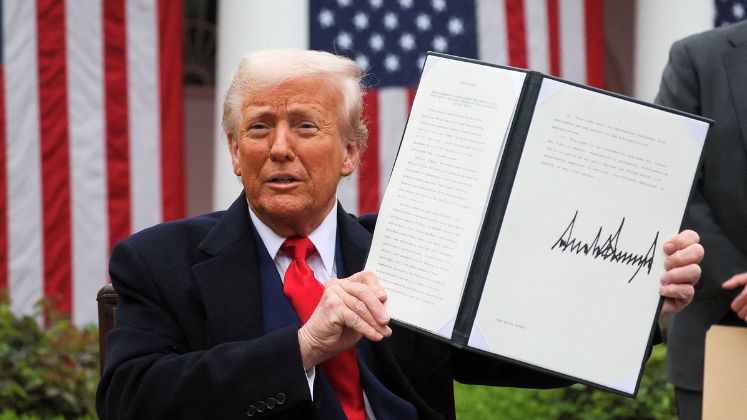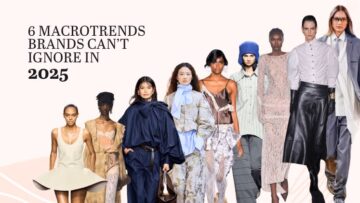
Experts around the world emphasise on the turbulence that awaits global trade as a repercussion of the United States tariffs. Global businesses are bracing for significant economic challenges following US President Donald Trump’s implementation of broad tariffs, which have escalated trade tensions worldwide.
The newly imposed tariffs, ranging from 10 per cent to nearly 50 per cent, are anticipated to drive up costs for consumers and disrupt international trade flows. Many of the nation’s biggest trading partners and significant fashion industry suppliers are on the official list of incremental tariffs, which Trump called “reciprocal.” Bangladesh will be subject to a 37 per cent reciprocal tariff, Vietnam to a 46 per cent tariff, and China to a 34 per cent tariff. The reciprocal tariff with the EU is 20 per cent.
While Trump asserts that these tariffs will stimulate job growth in the United States, business leaders are primarily concerned about the potential for increased prices, reduced export volumes, and a decline in investment.
Among the first to voice concern were shipping companies, which are essential to international trade. The second-biggest container shipping company in the world, Maersk, recognised the importance of the taxes and their possible harm to international trade and the economy. German container shipping firm Hapag-Lloyd also forecast that the tariffs might have an impact on prices, demand, and cargo flows, possibly requiring changes to its service network.
Dirk Jandura, president of Germany’s BGA association, representing importers and exporters, stated that businesses would likely pass the increased costs onto consumers, resulting in decreased sales.
Perhaps more than any other produced goods sector, the fashion business is reliant on global supply chains, according to the United States Fashion business Association.
While President Trump’s emphasis on lowering trade barriers abroad is commendable, America’s high trade barriers also need to be lowered, and this reduction must be made in a predictable way to allow for long-term supply chain and investment decisions, according to Steve Lamar, president and CEO of the American Apparel and Footwear Association.
The head of Confindustria Accessori Moda, which represents Italian leather, fur, tannery, and footwear industries, Giovanna Ceolini, voiced concerns about a possible decline in demand as a result of rising costs.
As businesses work to preserve their profit margins, Jefferies analysts forecast a 6 per cent increase in luxury prices in the US.
The White House believes the tariffs will encourage onshoring, as seen in the USMCA trade deal, which prompted manufacturing to shift from China to Mexico or Canada. German company ebm-papst, for instance, is considering expanding its US operations instead of building a new plant in Mexico due to potential tariffs.






